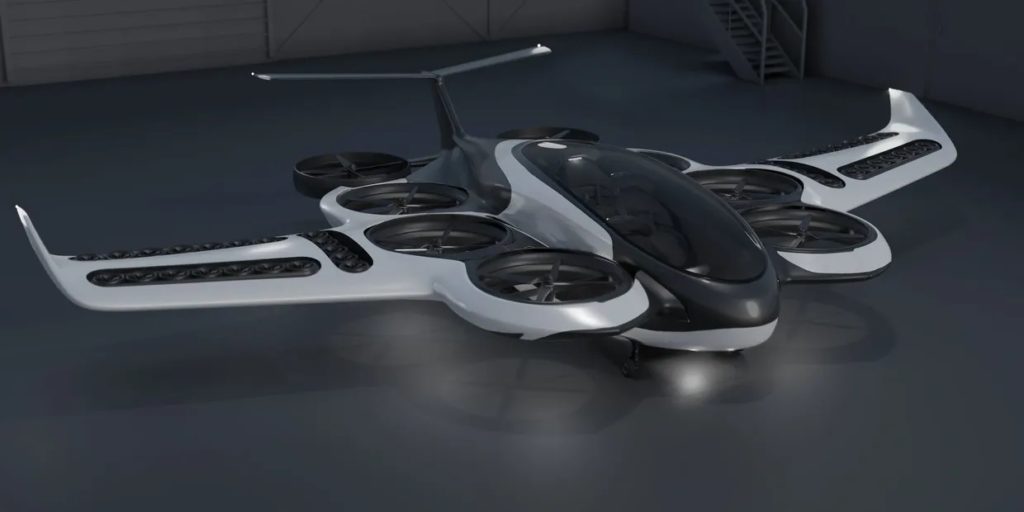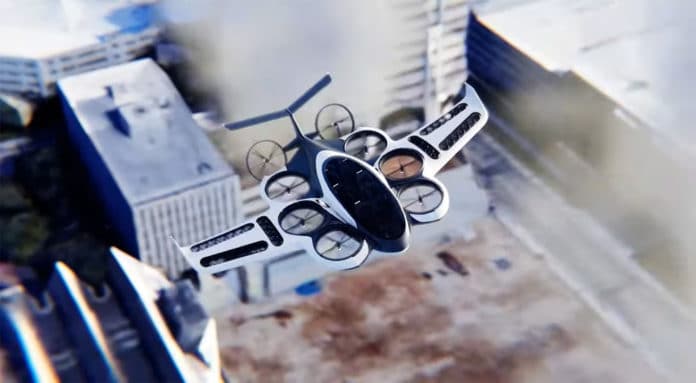Paragon VTOL Aerospace is working on the next generation of its eVTOL aircraft design called Soar, which will be powered by a powertrain that uses direct combustion of liquid hydrogen as a range extender. The idea, in addition to carrying up to nine passengers, is to give the air taxi massive range figures between 300-800 miles (480-1,287 km) depending on the configuration and load.
Firstly, the Soar stands out for its unusual design, which offers eight large, ducted electric fans placed along the sides of the fuselage and a series of smaller fans embedded in the fixed-wing. The rear two of its eight large-ducted turbofans tilt to provide forward thrust, while the smaller ones help with stability and control and enable vertical takeoff and landing.
Secondly, for the powertrain, the company has designed a hybrid system that uses direct hydrogen combustion alongside a battery pack to achieve its dual aims of significantly reducing emissions and providing an extended range.

Current renders on the company’s website show a six-seater (5 passenger+ plus pilot) vehicle. It was designed for 500-mile (805-km) range figures using a hybrid-electric powertrain. However, the company states that the “final version will be based on an FAA-approved airframe which may alter the commercial ready VTOL.”
With the first prototype test flights scheduled for early 2022, the new variant will take off with a battery system powered by a hydrogen-fueled combustion engine. Paragon founder Dwight Smith doesn’t seem to be interested in the hydrogen fuel cells popular today, which convert hydrogen into electricity “directly.” The current plan calls for the production version to run a combustion engine using liquid hydrogen as fuel.
That’s the challenge Paragon will have to face for bringing its new eVTOL aircraft to market. Aviation-grade liquid hydrogen-based systems are at an embryonic stage of development currently, so the goal of introducing a new product in 2024/5 seems very optimistic. In addition, more than a billion dollars in investments will be needed to create a truly functional solution.
However, the company is thinking big, planning to build a 730-acre factory and vertiport in Brownville, Texas, near the Mexican border and SpaceX’s launch sites. The company expects to launch a prototype of Soar to the skies as early as 2022 before officially releasing its finalized aircraft in 2024.
Earlier this year, the AeroDelft team presented a one-third-scale prototype of its Phoenix two-seater, which aims to be the world’s first liquid hydrogen plane.
